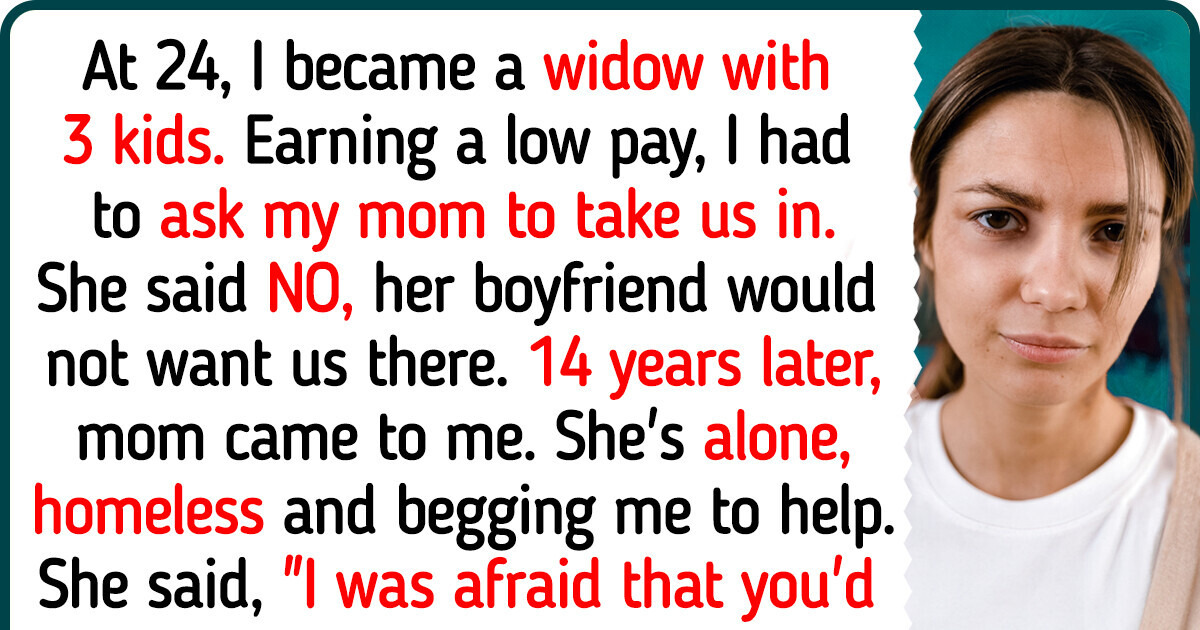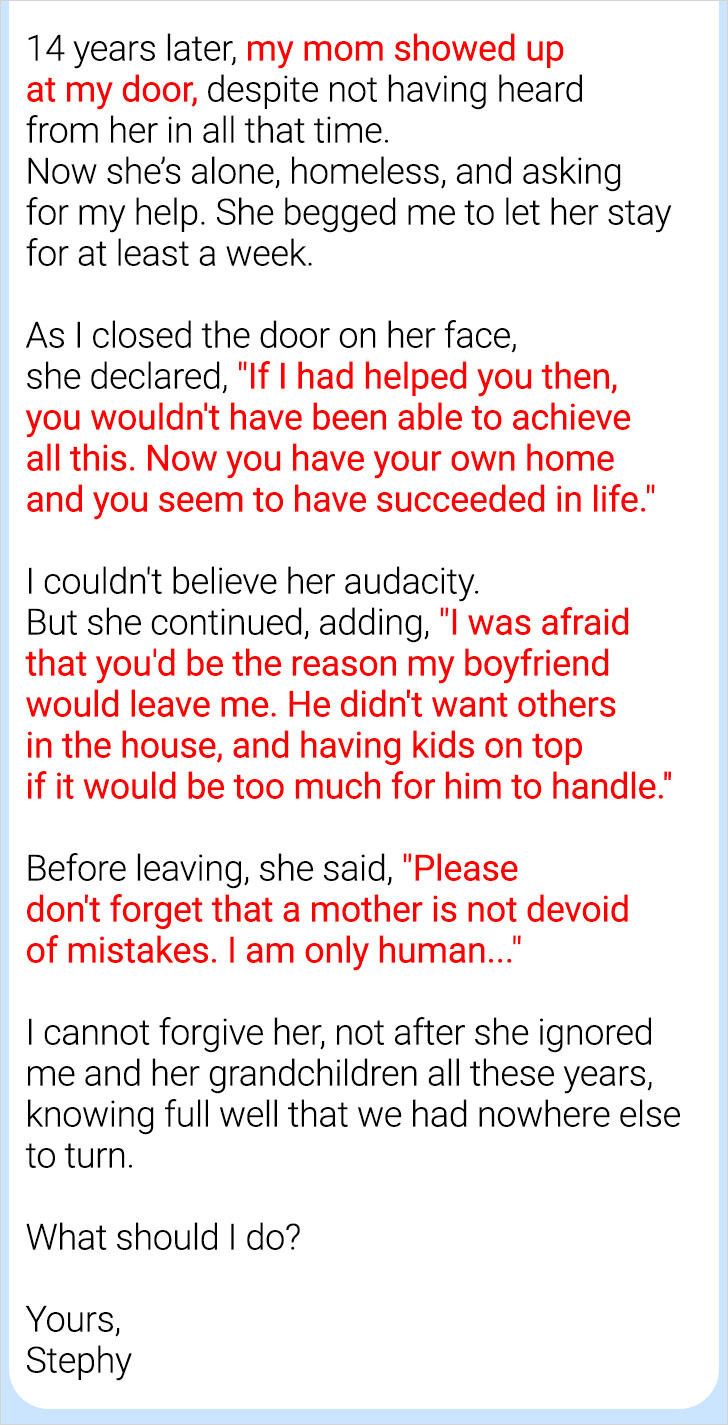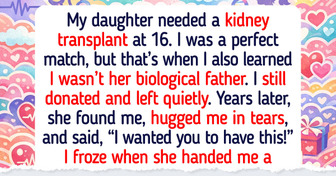I Stopped Picking Up Job Calls on Weekends—Now HR Is Rethinking Their Policy


Mothers are often seen as our greatest sources of support, especially during challenging times, but this ideal doesn’t always match reality. When Stephy was 24, she experienced the most challenging time of her life. With three children and no other options, she turned to her mother for help. However, her mother refused, leaving Stephy to navigate her struggles alone. Now, years later, the roles have reversed, and her mother is the one in need of assistance. Stephy has come to us for guidance on how to handle this complicated situation.


Thank you for trusting us with your story, Stephy! We’ve compiled some tips that we believe might be beneficial for you.
Creating clear boundaries is vital for safeguarding both your own well-being and that of your family. While it’s natural to feel a sense of responsibility towards your mother, prioritizing your mental and emotional health, along with that of your children, is paramount.
In a respectful yet assertive manner, express your boundaries to your mother. Communicate that while you understand her circumstances, you’re unable to accommodate her request to stay with you. Offer alternative means of support, like connecting her with local shelters or social services equipped to assist her.
Initiating a conversation with your mother to express your feelings and seek closure could be a transformative step in your journey. Though confronting her about past actions might be daunting, expressing your emotions can serve as a cathartic process toward healing.
Be transparent about the pain caused by her absence, both for you and your children, while also endeavoring to understand her perspective. This dialogue presents an opportunity for both of you to acknowledge past missteps and potentially forge a new path for your relationship, even if it doesn’t entail her staying with you.
Amidst this emotionally challenging period, make your well-being and that of your children your top priority. Dedicate time to rest, rejuvenate, and indulge in activities that bring you happiness and fulfillment.
It could be beneficial to seek support from a therapist or counselor who can offer guidance and assist you in processing your emotions regarding your mother’s unexpected return.
By prioritizing self-care, you’ll enhance your ability to manage challenging feelings and make decisions that resonate with your values and requirements.
Reflect on forgiveness as a potent means to achieve emotional freedom. Understand that forgiveness doesn’t equate to approving or erasing your mother’s previous deeds; instead, it’s about releasing the anger, resentment, and bitterness that might be constraining you.
Acknowledge that forgiveness is a gradual process, and it’s perfectly acceptable to proceed at your own pace while seeking assistance along the way. As you embrace forgiveness, you reclaim control over your life and choices, opening doors to a more hopeful future for yourself and your children.
Clarissa has a complicated history with her mother. She believed she was abandoned, only to have her mother return with a different story. Now unsure who to trust, Clarissa wrote us and asked for advice.











